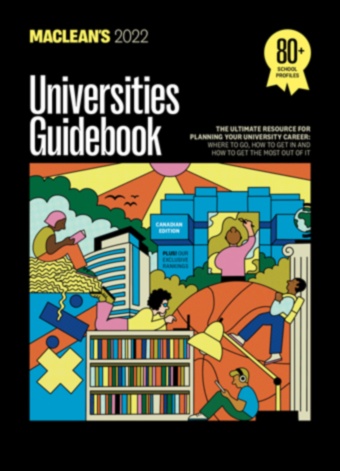
From Application to Graduation: A University Handbook
This handbook provides information on the steps involved in applying to and succeeding in college. It covers topics such as the application process, financial aid options, course selection, and student life.

I. Introduction
College is a major investment of time, money, and effort. It’s important to make sure that you’re making the right decision before you apply. This handbook will help you understand the college admissions process and make informed decisions about where to apply.
II. What is the application process?
The college admissions process can be complex, but it’s important to remember that it’s designed to help you find the right college for you. The first step is to research colleges that you’re interested in. Once you’ve identified a few schools, you’ll need to submit an application. Most applications require you to provide information about your academic record, extracurricular activities, and personal statement. You may also be required to take standardized tests, such as the SAT or ACT.

III. What are the requirements for admission?
The requirements for admission to college vary from school to school. However, most colleges look for students with a strong academic record, good standardized test scores, and a variety of extracurricular activities. You may also be required to write a personal statement or submit an essay.

IV. How to write a personal statement?
The personal statement is an important part of your college application. It’s your chance to tell the admissions committee why you want to go to college and what you’re passionate about. The personal statement should be well-written and persuasive. It should also be tailored to the specific college you’re applying to.
V. How to prepare for an interview?
If you’re invited to interview with a college, it’s important to be prepared. The interview is your chance to show the admissions committee that you’re a good fit for their school. Dress professionally and arrive on time for your interview. Be prepared to answer questions about your academic record, extracurricular activities, and personal statement.
VI. What are the financial aid options?
College is expensive, but there are a number of financial aid options available to help you pay for school. The most common type of financial aid is grants, which are awarded based on financial need. Scholarships are another type of financial aid that are awarded based on merit. You may also be eligible for student loans or work-study programs.
VII. How to apply to multiple universities?
The application process can be time-consuming, so it’s important to plan ahead if you’re applying to multiple universities. Start by creating a list of schools that you’re interested in. Once you’ve identified a few schools, you’ll need to start working on your applications. Most applications require you to submit an application form, transcripts, standardized test scores, and a personal statement. You may also be required to submit an essay or interview.
VIII. When to apply?
The best time to apply to college depends on your individual circumstances. However, most colleges recommend that you apply early decision or early action. Early decision deadlines are typically in November or December, while early action deadlines are typically in January or February.
IX. How to track your application status?
Once you’ve submitted your applications, it’s important to track your status. Most colleges will have a website where you can check the status of your application. You may also be able to contact the admissions office to check on your status.
X. FAQ
This section provides answers to frequently asked questions about the college admissions process.
| Topic | Answer |
|---|---|
| University Handbook | A guide to applying to and succeeding in college |
| College Admissions | The process of applying to college |
| College Application | The documents you need to submit to apply to college |
| College Life | The experience of being a college student |
| College Graduation | The process of graduating from college |
I. Introduction
This handbook provides an overview of the college admissions process, from preparing your application to tracking your status. We will cover topics such as the requirements for admission, how to write a personal statement, and how to prepare for an interview. We will also discuss financial aid options and how to choose the right college for you.
II. What is the application process?
The application process for college can be daunting, but it’s important to remember that you’re not alone. Thousands of students apply to college every year, and most of them are accepted to at least one school. The key is to start early and stay organized.
The first step in the application process is to research colleges and universities that you’re interested in. Once you’ve identified a few schools, you can start gathering information about their admissions requirements. Most colleges have a website with a list of their requirements, so be sure to check that out.
Once you know what the requirements are, you can start working on your application. This typically includes submitting your transcripts, standardized test scores, a personal statement, and letters of recommendation.
The personal statement is an important part of your application, so take some time to write a strong one. Your personal statement should be about 500-600 words long and should tell the admissions committee something about yourself that they wouldn’t be able to learn from your transcripts or test scores.
Letters of recommendation are also important, so be sure to ask teachers, coaches, or other mentors who know you well to write one for you.
Once you’ve submitted your application, it’s time to wait for a decision. Most colleges will notify you of their decision in the spring.
II. What is the application process?
The application process for college can be daunting, but it’s important to remember that you’re not alone. Thousands of students apply to college every year, and most of them are accepted to at least one school. The key is to start early and to stay organized.
The first step in the application process is to research colleges and universities that you’re interested in. Once you’ve narrowed down your list, you can start the application process. Most colleges require you to submit the following materials:
- A completed application form
- Your high school transcript
- SAT or ACT scores
- A personal statement
- Letters of recommendation
The personal statement is an important part of your application, so take your time writing it. You should use the personal statement to share your unique story and why you’re interested in attending the college you’re applying to.
Letters of recommendation can also be helpful, so make sure to ask teachers, coaches, or other mentors who know you well to write them.
Once you’ve submitted your application, you’ll need to wait for a decision. Most colleges will notify you of their decision in the spring.
V. How to prepare for an interview?
An interview is a chance for you to show the admissions committee that you are a good fit for their school. It is important to be prepared and to make a good impression.
Here are some tips for preparing for an interview:
- Do your research on the school and the program you are applying to.
- Think about why you want to attend this particular school and what you can contribute to the community.
- Practice answering common interview questions.
- Dress professionally and arrive on time for your interview.
- Be yourself and be confident.
During the interview, be sure to make eye contact, smile, and be polite. Listen carefully to the questions and answer them thoughtfully. Be prepared to ask your own questions about the school and the program.
At the end of the interview, thank the interviewer for their time and express your interest in the school.
VI. What are the financial aid options?
There are a variety of financial aid options available to students who are applying to college. These options include scholarships, grants, loans, and work-study programs.
Scholarships are awarded based on academic merit, financial need, or a combination of the two. Grants are awarded based on financial need, and do not have to be repaid. Loans must be repaid, but they can be a helpful way to cover the cost of college if you don’t qualify for scholarships or grants. Work-study programs allow students to earn money while they are in school.
The amount of financial aid that you receive will depend on your individual circumstances. You should fill out the Free Application for Federal Student Aid (FAFSA) to determine your eligibility for financial aid.
For more information on financial aid, you can visit the following websites:
VII. How to apply to multiple universities?
Applying to multiple universities is a great way to increase your chances of being accepted to at least one school. However, it can also be a lot of work. Here are a few tips for applying to multiple universities:
* Start early. The sooner you start the application process, the more time you will have to research schools, write your essays, and prepare for interviews.
* Create a list of target schools. When you are first starting your college search, it is helpful to create a list of target schools. These are schools that you are interested in and that you think you have a good chance of being accepted to.
* Research each school carefully. Once you have a list of target schools, it is important to research each school carefully. This includes reading about the school’s academic programs, admissions requirements, and financial aid policies.
* Write strong essays. The essays you write for your college applications are one of the most important factors in the admissions process. Take your time writing your essays and make sure they are well-written and error-free.
* Prepare for interviews. If you are invited to interview with a school, it is important to prepare. This includes researching the school, practicing your answers to common interview questions, and dressing professionally.
* Submit your applications on time. The deadline for submitting your applications is usually early in the fall. Make sure you submit your applications on time so that you don’t miss out on any opportunities.
By following these tips, you can increase your chances of being accepted to multiple universities.
When to apply?
The best time to apply for college depends on your individual circumstances. However, there are a few general guidelines that you can follow.
Early decision: Early decision is a binding application process that allows you to apply to a college before the regular decision deadline. If you are accepted to a college under early decision, you must commit to attending that college. Early decision deadlines are typically in November or December.
Early action: Early action is a non-binding application process that allows you to apply to a college before the regular decision deadline. If you are accepted to a college under early action, you are not obligated to attend that college. Early action deadlines are typically in November or December.
Regular decision: Regular decision is the standard application process for most colleges. The regular decision deadline is typically in January or February.
Rolling admissions: Rolling admissions is a process in which colleges review applications on a rolling basis. This means that colleges start reviewing applications as soon as they are received and continue to do so until all of the available spots are filled. Rolling admissions deadlines vary from college to college.
When you decide to apply for college is a personal decision. You should consider your academic qualifications, financial situation, and personal preferences when making this decision.
IX. How to track your application status?
Once you have submitted your application, you will be able to track its status online. Most colleges will have a portal where you can log in and see if your application has been received, reviewed, and/or admitted. You may also be able to see your test scores, letters of recommendation, and other application materials.
It is important to check your application status regularly to make sure that there are no delays. If you have not heard back from a college within a few weeks of submitting your application, you can contact the admissions office to inquire about your status.
Here are some tips for tracking your application status:
- Create a reminder on your phone or calendar to check your application status on a regular basis.
- Be patient. It may take a few weeks for your application to be processed.
- If you have not heard back from a college within a few weeks of submitting your application, you can contact the admissions office to inquire about your status.
FAQ
Question 1: What are the requirements for admission to college?
Answer 1: The requirements for admission to college vary depending on the institution. However, some common requirements include a high school diploma or equivalent, a minimum GPA, and standardized test scores.
Question 2: How do I write a personal statement for college admissions?
Answer 2: A personal statement is an essay that tells admissions officers about who you are and why you want to attend their college. It should be well-written, personal, and persuasive.
Question 3: How do I prepare for a college interview?
Answer 3: A college interview is an opportunity for you to show admissions officers who you are and why you would be a good fit for their school. It is important to be prepared for the interview by doing your research on the school, practicing your answers to common interview questions, and dressing professionally.